Alzheimer’s Prevention Using Lifestyle Medicine Strategies for a Healthy Brain {Lifestyle Medicine | Nutrition}
Alzheimer’s prevention using lifestyle medicine strategies can protect the brain and reduce the risk of cognitive decline. Alzheimer’s Disease is a type of brain disorder that causes debilitating problems with memory, behavior and thinking. Fortunately, adopting a combination of healthy habits and a personalized lifestyle approach for Alzheimer’s prevention promotes good brain health and may help stave off this disease!
Subscribe to my YouTube Channel for more Travel, Healthy Lifestyle & Recipes, Eco-Friendly Living, Mindfulness videos and more!
Affiliate Disclosure & Privacy Policy (please review our complete policy here): we use affiliate links and analytics on our website, social media posts and newsletter which utilize cookies placed on your browser to track sales activity. This post is NOT sponsored but may contain affiliate links. Please review our complete privacy policy here. Thank you for your support! These statements have not been evaluated by the FDA and should not be considered medical advice or treatment. Please consult your personal health provider before making any changes to your diet or lifestyle.
Alzheimer’s Disease: A Debilitating Brain Disorder
Alzheimer’s Disease is a type of brain disorder that causes problems with memory, behavior and thinking. This type of dementia impacts over 5 million Americans and over 45 million people worldwide. This devastating condition takes a major toll on sufferers as well as their caregivers.
Over time, many patients with this disorder develop debilitating cognitive problems. Although memory loss associated with Alzheimer’s Disease can be mild early on, patients commonly develop
- more serious confusion and memory loss over time,
- in addition to mood and behavior changes,
- disorientation, and
- difficulty speaking, swallowing and walking.
There is currently no known cure for Alzheimer’s Disease. Fortunately, adopting a combination of healthy habits and a personalized lifestyle approach promotes good brain health and may help stave off disease.
Alzheimer’s Prevention: Lifestyle Habits Can Protect the Brain
This disease is not just an inevitable part of aging. Science suggests that Alzheimer’s Disease develops gradually over time. Therefore, Alzheimer’s prevention is an important strategy in reducing the impact of this debilitating condition. The underlying problem appears to be neuroinflammation or imbalanced inflammation in the brain that damages nerve cells.
Scientists have been able to identify several modifiable lifestyle-related risk factors for Alzheimer’s Disease. Even if you have a genetic predisposition to develop brain disease or are exposed to risk factors outside of your control, such as air pollution, lifestyle medicine offers attainable, actionable recommendations for Alzheimer’s prevention that can help you live a healthier life.
A combination of healthy lifestyle habits protects the brain and reduces your risk of cognitive decline. The more healthy habits a person adopts as part of an Alzheimer’s prevention strategy, the lower her risk of developing brain disease.

In fact, recent research suggests that people who followed at least four out of five of the following lifestyle behaviors over a six-year period had a 60% lower risk of developing Alzheimer’s Disease compared to people who practiced only one or none of these habits. The researchers focused on five low-risk lifestyle factors for Alzheimer’s prevention including
- following a healthy diet,
- getting at least 150 minutes per week of moderate to vigorous physical activity,
- not smoking,
- maintaining light to moderate alcohol intake and
- engaging in cognitively stimulating activities.
This research offers hope for building a better brain as you age and preventing dementia!
A Daily Routine for Alzheimer’s Prevention to Promote Brain Health
Overall, incorporating a combination of healthy habits which are foundations of lifestyle medicine into your daily routine can help reduce inflammation and protect your brain health for effective Alzheimer’s prevention.
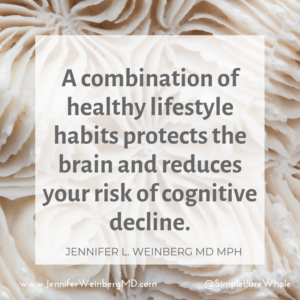
These brain-boosting habits for Alzheimer’s prevention include:
- regular exercise,
- cognitive stimulation,
- social interaction and meaningful connections,
- regular, high-quality sleep,
- a brain-healthy diet, and
- abstaining from smoking.
Move Daily for Alzheimer’s Prevention
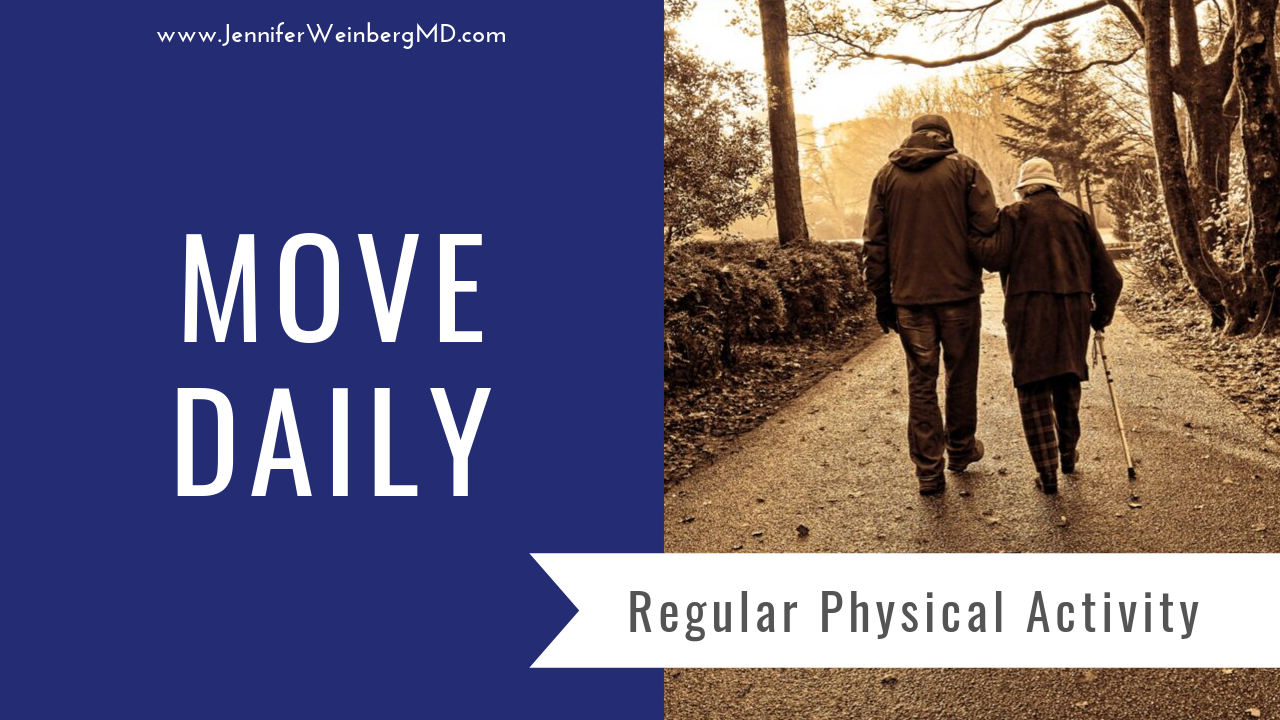
Regular physical activity has a beneficial impact on brain health and is an important part of a daily routine for Alzheimer’s prevention. Exercise helps activate brain plasticity and positive growth of connections in the brain while decreasing inflammation. These benefits seem to help preserve memory and brain function in healthy older adults as well as those with early signs of dementia.
An active lifestyle can make a difference in Alzheimer’s prevention, whether or not you formally hit the gym. The more you move around as part of your daily life, the better for your brain health. In fact, consistent intermittent activity throughout the day, such as brief interval training, has actually been shown to be more metabolically beneficial to maintain and improve brain function than sporadic extended activity.
- Engage in interval exercise to boost brain health, reduce inflammation and improve metabolic function.
- Take short exercise breaks like climbing the stairs or using a desk cycle to refocus attention and help maintain productivity in the workplace.
- Bonus for trying a new workout or sport you have never engaged in before to challenge your brain and build new neural networks!
Learn New Skills and Engage in Cognitive Stimulation for Alzheimer’s Prevention
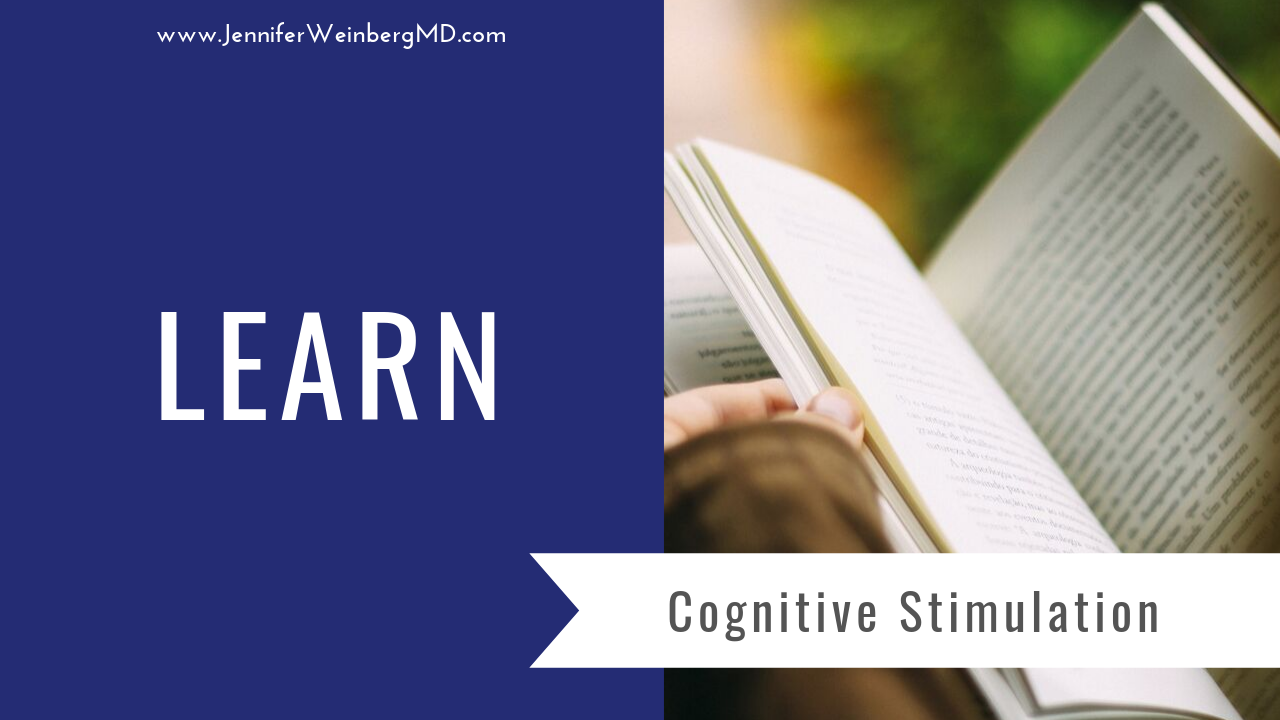
Your brain consists of hundreds of billions of nerve cells (neurons) which make hundreds of trillions of connections (synapses) throughout the brain and nervous system. These compose your neural network or nervous system. We now understand that the nervous system and brain has a remarkable capacity (neuroplasticity) to continue to grow, evolve and heal even as we age.
“Cognitive reserve” is a term used to refer to the brain’s capacity to cope with potentially damaging impacts. This build up of information and regular use of the brain’s capabilities boosts cognitive pathways between neurons and builds resiliency in brain function.
Studies show that engaging in physically and mentally stimulating activities is an important element of cognitive reserve and therefore beneficial for Alzheimer’s prevention. The resulting benefits of cognitive stimulation seems to offer protection against brain damage caused by insults such as outdoor air pollution exposure which have been linked to a higher risk of Alzheimer’s Disease.
- Learn a new skill to strengthen networks in the brain and protect memory. Choose something you have always wanted to try like playing a new instrument, taking a course, learning a new language, starting a new craft or tackling a new technology.
- Break your routine. Doing the opposite of what feels natural helps to activate the other side of your brain and improve access to both hemispheres. Write with your less dominant hand, use the mouse in your other hand, or hold your phone to the opposite side of your head.
Develop Good Sleep Habits for Alzheimer’s Prevention
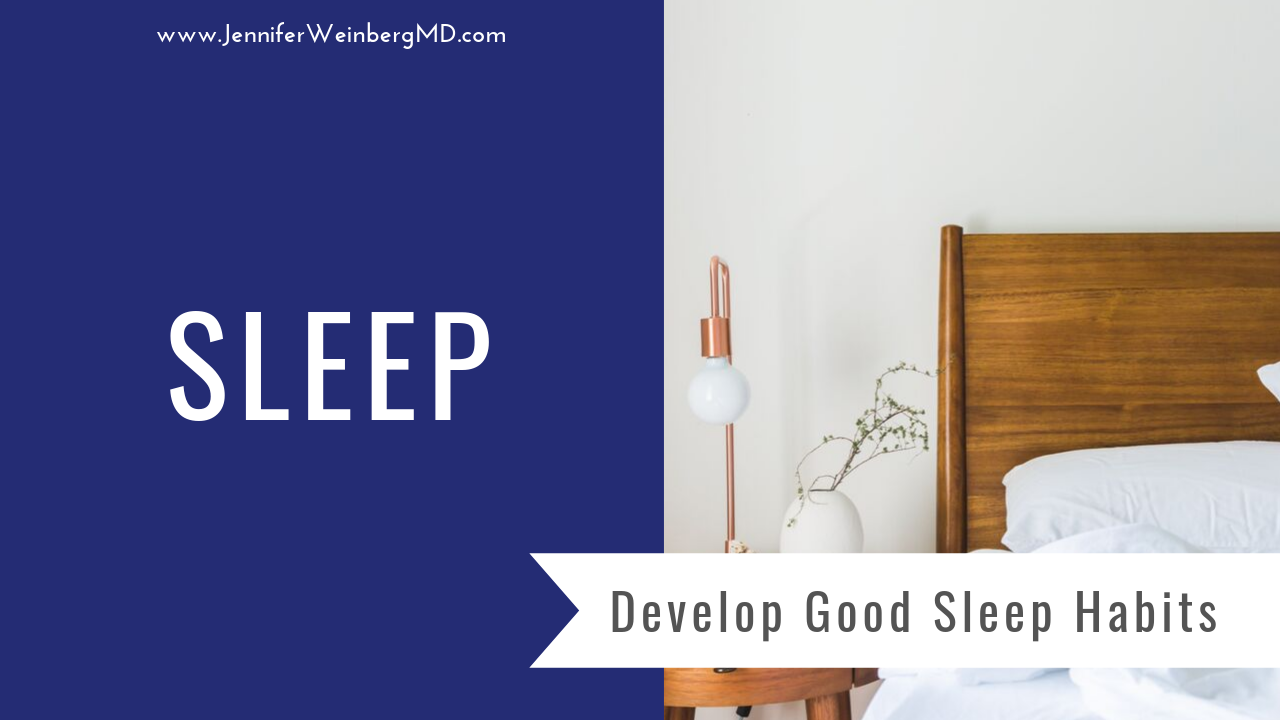
Our brains need sleep and are remarkably active during this time when the body rests. Science shows that sleep is crucial for brain remodeling and function. It is the time when the brain focuses on dealing with metabolic waste products, processing information and forming memories.
For example, research shows that the junctions between nerve cells, called synapses, grow during daytime stimulation and then shrink by nearly 20 percent while we sleep, “resetting” the brain to create room for more growth and learning the next day.
Therefore, regular adequate sleep is necessary for good brain health and Alzheimer’s prevention. Without adequate sleep, humans experience cognitive deficits of many kinds, attention issues and declines in the ability to learn and process information.
- For maximum rejuvenation, brain function and Alzheimer’s prevention, aim for a minimum of 7 to 9 hours of sleep each night.
- Promote restful sleep by practicing a soothing evening routine to prepare your mind and body for sleep.
- Maintain a set sleep schedule and comfortable, healthy sleeping environment.
- Consider using glasses with digital screen protection to block blue light helps to keep your metabolism balanced and improve sleep.
Manage and Handle Stress for Alzheimer’s Prevention
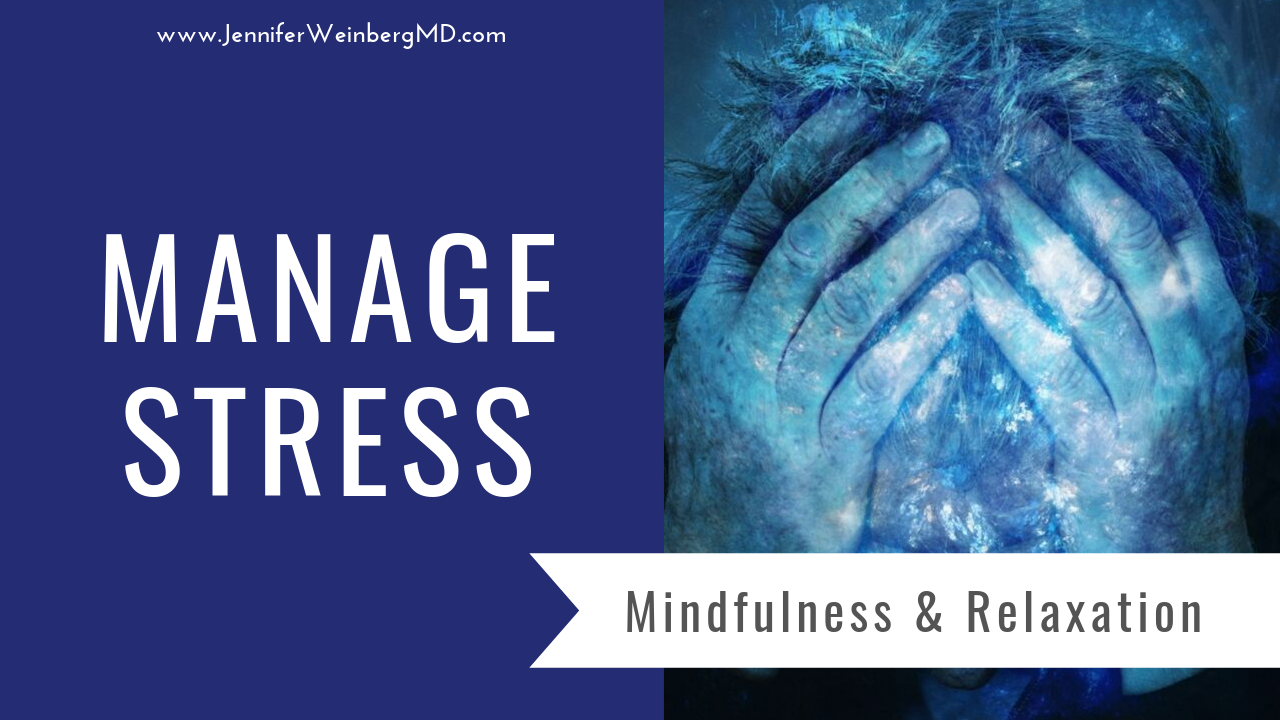
Chronic stress is a major cause of inflammation in the brain and body. Relentless emotional, physical, and psychological stress promotes unchecked inflammation and contributes to cognitive dysfunction. High-levels of prolonged chronic stress are associated with an increased risk of cognitive impairment.
Stress management techniques like mindfulness meditation are crucial for managing inflammation overall and specifically for brain health, healthy aging and Alzheimer’s prevention. Mindfulness meditation exerts beneficial impacts on physical and mental health.
A regular meditation practice allows you to improve focused attention, positively shift your mood, enhance awareness and improve overall health. These brain-protective benefits of meditation might be related to neuroplastic changes in the structure and function of brain regions involved in the regulation of attention, emotion, and self-awareness which occur in those who meditate regularly.
- Pay attention to how you experience and express stress. Keep a journal and write down symptoms and signs you experience when you are overwhelmed by stress. By paying attention and learning to recognize what triggers stress for you and how your body experiences and reacts to stress, you can learn how to choose how you react and cope with stressors.
- Say no and set boundaries to choose where you spend your energy. Setting limits or saying no to activities, interactions and work that depletes or harms you physically, emotionally or spiritually shows self-love and compassion and helps you to avoid and manage stress.
- Prioritize down time. Try adding in 10 minutes each day to sit quietly without distractions and allow yourself to simply be present. You may find it easier to start by taking time to focus on a simple guided meditation like this one. When you are ready to disconnect further, find a quiet place to be alone and turn off all distractions like your phone, computer and tv. Close your eyes and do nothing but breathe quietly in stillness.
Interact with Friends and Build a Social Network for Alzheimer’s Prevention
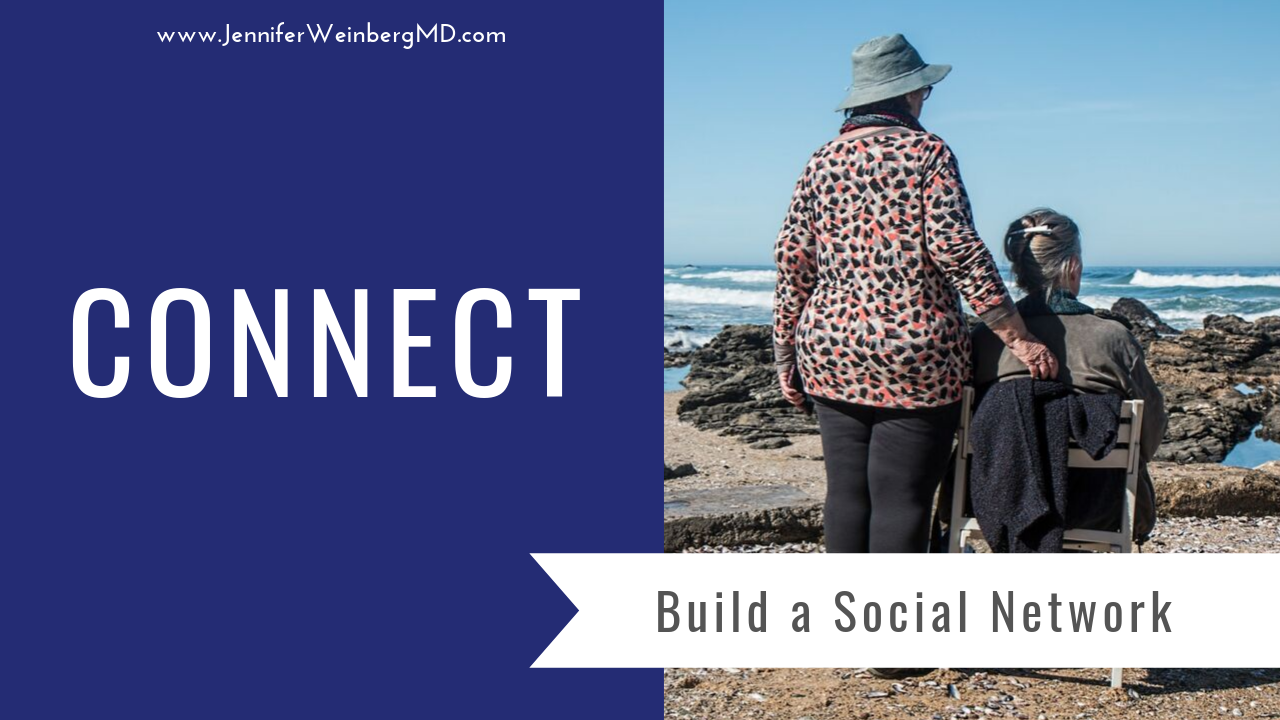
Social isolation can impair immune function and increase inflammation. These changes may contribute to the development or worsening of numerous health issues.
Studies show that loneliness and social isolation are associated with pathological brain changes associated with Alzheimer’s Disease in older adults. A lack of social support is also associated with poor sleep habits, increased risk of depression and other mental health impacts.
Having a supportive network of friends and meaningful social connections is crucial for a healthy balanced life and brain as part of a lifestyle-based strategy for Alzheimer’s prevention.
- Be truly present with loved ones and make an effort to deepen your connections.
- Schedule quality time with friends to engage in activities you enjoy.
- Practice doing things for and with people you love as well as random acts of kindness.
- Communicate consciously and compassionately to build healthier relationships.
Enjoy a Balanced, Anti-Inflammatory Diet for Alzheimer’s Prevention
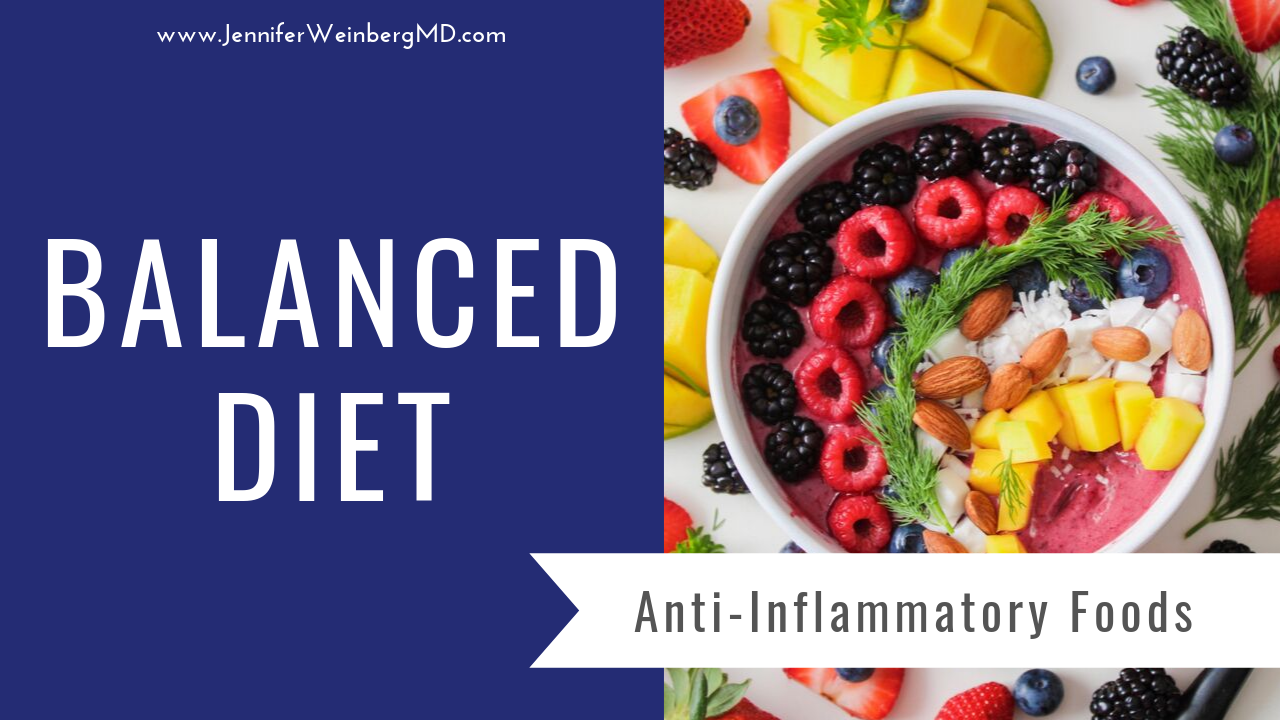
The food you eat can enhance brain function, prevent disease and improve memory. Although each person is unique with personalized nutritional needs, eating a variety of healthy foods in their whole-food forms provides your body with essential nutrients that protect, relax, and nourish your brain.
An anti-inflammatory diet revolves around real, whole foods without added, refined sugars, processed carbohydrates, and artificial ingredients. Incorporate a wide variety of colorful organic vegetables, natural fiber, essential phytonutrients, and probiotics to nourish a healthy microbiome and squelch excess inflammation, an important component of Alzheimer’s prevention.
There are certain foods for Alzheimer’s prevention which are especially supportive of cognition and healthy brain function.
- Regular walnut consumption boosts overall cognitive functioning by reducing inflammation and improving brain health.
- Curcumin in turmeric has neuroprotective and anti-inflammatory properties which help prevent the development of neurodegenerative diseases like Alzheimer’s Disease.
- The brain is largely composed of fatty acids, so it is not surprising that consumption of omega-3-rich foods like salmon and sardines is associated with a reduced risk of cognitive decline and Alzheimer’s Disease.
- Berries and cherries are rich in anthocyanins. These powerful antioxidants help prevent damage caused by free radicals that can contribute to neurodegeneration to help protect and enhance memory.
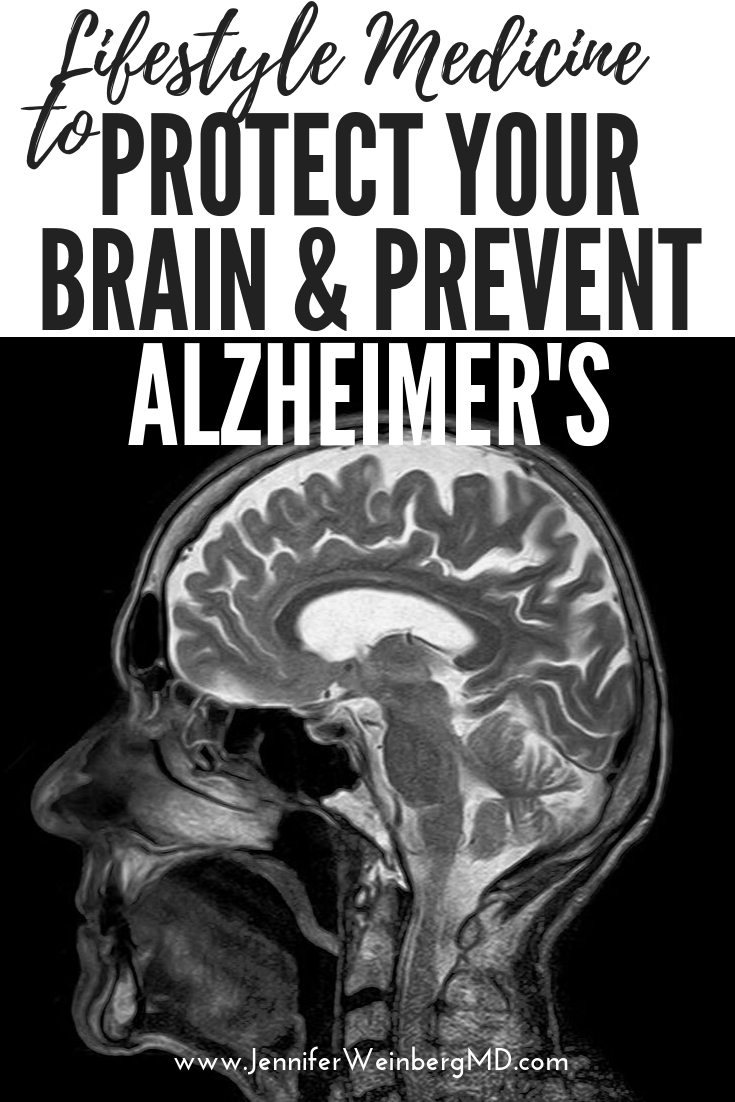
A personalized healthy lifestyle is the cornerstone of Alzheimer’s prevention and promoting brain health. Combine these balanced lifestyle habits to promote good brain health and reduce your risk of cognitive decline!
How do you exercise your brain for Alzheimer’s prevention?
Has your life been impacted by Alzheimer’s Disease?
Click here for more vegan, gluten-free, allergy-friendly Simple Pure Whole healthy recipes!
I would love to have you in my Insider’s Community! Join for free to subscribe to my email newsletter and receive your BONUS of FREE Chapters from The Whole Cure: 52 Essential Prescriptions to Overcome Overwhelm, Reclaim Balance and Reconnect with a Life You Love! You can pick up a full paperback or Kindle copy on Amazon (affiliate link) for a wealth of insights, exercises and complete toolkit to help you uncover your true passions, authentic purpose and calm confidence as well!
To keep building your healthy lifestyle and best self through everyday habits, take the next step today to commit to a life you truly love and feel fully alive!
-
Pick up a copy of The Whole Cure (affiliate link) to build resilience and manage stress in a way that makes life flow with greater ease and joy!
-
Access guided relaxation exercises utilizing the power of the breath and mind here.
-
Join my next online group Whole Cure Lifestyle Transformation Programs to build more powerful coping strategies and skills for meaningful stress management and a calmer life! Contact me to form your own guided online group or register for the next scheduled online program!
Medical Disclaimer: Information provided in this post and related resources are for informational purposes only. Jennifer Weinberg is not providing medical advice, diagnosis or treatment information. The information is NOT intended as a substitute for the advice provided by your physician or other healthcare professional. Every body is unique so be sure to check with your healthcare professional before making any dietary or lifestyle changes taking any medication or nutritional supplement or using any treatment for a health issue. Do not use this information provided for diagnosing or treating a health problem or disease. If you suspect you have a medical problem please contact your healthcare provider promptly and do not disregard professional medical advice based on anything on this website. This website and related resources are not intended to diagnose, treat, cure or prevent disease and do not create a doctor-patient relationship between you and Jennifer Weinberg. These statements have not been evaluated by the FDA. These products are not intended to diagnose, treat, cure, or prevent any disease.
This post was shared with: Home Matters Link Party


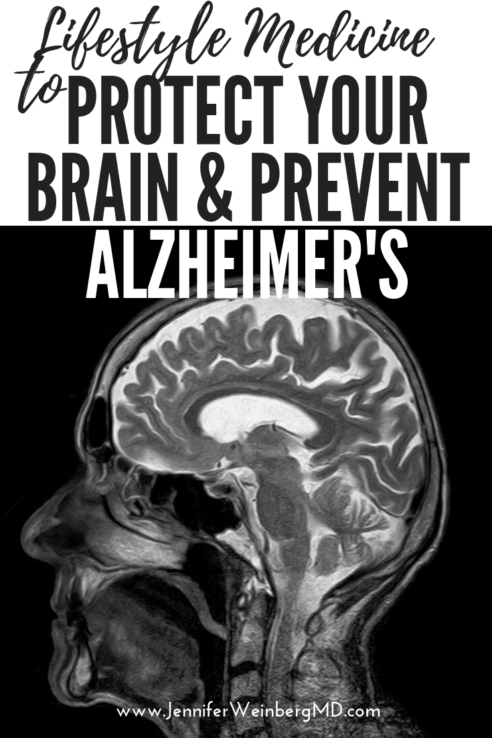


Comments
Deborah Brooks
My grandmother had this disease.. It is a tough one to watch. Great information here thanks for sharing
Dr. Jennifer L. Weinberg, MD, MPH, MBE
I am sorry you and your family experienced this difficult disease. Thank you so much for reading!
Sandra D Laflamme
Alzheimer’s is such a sad disease. My friend just lost his dad to it and I have another friend with a parent who is suffering.
Dr. Jennifer L. Weinberg, MD, MPH, MBE
Yes, it takes such a toll on both the person and the caregivers and loved ones. Thank you for visiting and for your comment!